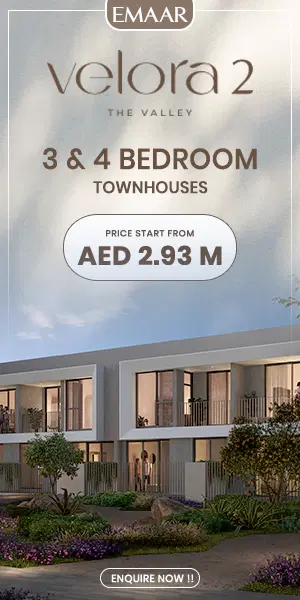Understanding Off-Plan Payment Plans in Dubai
Off-plan properties, which are developments sold before construction is complete, are increasingly pivotal in the Dubai real estate landscape. Structured payment schedules enable buyers to distribute costs across construction, easing financial strain and enhancing affordability.
Buyers must understand varied off-plan payment plans in Dubai, encompassing milestone payments and final instalments, to make astute investment decisions. This blog comprehensively examines the frameworks available. It delves into standard payment models, investor protections like escrow regulations, inherent risks, and negotiation strategies. By the end, buyers and investors will gain practical guidance tailored to Dubai’s dynamic market.
What Are Off-Plan Payment Plans in Dubai and How Do They Work?
Off-plan payment plans in Dubai represent structured financial commitments aligned with construction phases. Rather than a lump sum, buyers pay in stages—including down payments, construction-linked payments, and final settlements.
Structure
Down payment: Usually 10–20% of property value at booking.
Milestone payments: Made as projects advance—foundations, structure, interiors, etc.
Final instalment: Typically, 10% is due on handover.
This Progressive payment schedule gives buyers predictability and preserves liquidity. Developers must hold funds in escrow accounts, safeguarding buyers until relevant developer obligations, such as completing a structural milestone, are met.

Under RERA (Real Estate Regulatory Authority), failure to reach milestones on schedule may entitle buyers to compensation or refunds, per Dubai Law No. (8) Of 2007 on Escrow. Common timelines allow 4–6 months between payments, though flexible payment plan options may enable quarterly or bespoke schedules.
For instance, a 40% deposit within 12 months followed by gradual instalments aligns with market best practice. The model aligns with the developer payment schedules commonly observed in Dubai’s growth-phase projects.
The regulated market ensures transparency and mitigates risk. Buyers benefit from legal recourse, while developers maintain cash flow. Understanding these components—payment milestones, escrow protection, and buyer rights—ensures a well-informed off-plan purchase decision.
What Types of Off-Plan Payment Plans Are Available to Buyers in Dubai?
Developers offer a variety of Dubai property payment options tailored to different financial tolerances and investment strategies. Here’s a breakdown:
Payment Plan Type | Description | Pros | Cons |
Post‑handover plan | Small deposit, then bulk payment after handover | Low immediate outlay, less risk until completion | High lump sum at the end, possible liquidity pressure |
Construction‑linked plan | Payments at defined project milestones | Off‑plan real estate cash flow alignment, reduced capital burden | Delays can shift payment dates |
Payment‑on‑booking | Requires full deposit upon booking | The developer is incentivized to complete quickly | High upfront cost, potentially high property deposit terms |
Hybrid plan | Combines elements of the above | Balances risk and flexibility | Complex terms may require careful legal review |
Market Examples
Leading developers in mid-2024 through 2025 (Emaar, Nakheel, Sobha, Azizi) adopted payment-on-booking models for new launches. These generally require 5–10% at booking, 20–30% by structure completion, and the rest on handover. Luxury projects often extend post-handover terms: 60% paid after handover, enabling easier Dubai real estate financing packages.
Buyers should choose a model tailored to their financial profile and risk comfort. Those seeking Dubai property investment opportunities via high leverage may prefer construction-linked plans. End-users might opt for post-handover options to avoid pre-completion risk.
How Do Off-Plan Payment Plans Impact Buyer Financial Planning in Dubai?
Budgeting Benefits of Staged Payments
Off-plan payment plans allow buyers to phase their financial commitments in alignment with construction progress. The structure makes high-value real estate more accessible, particularly for salaried individuals or entrepreneurs who prefer incremental outflows.
By breaking down costs into smaller, scheduled portions, buyers can plan their liquidity cycles more effectively without overstretching capital reserves.
Comparing Lump Sum vs. Phased Outlays
A significant advantage of off-plan models is their ability to minimize the impact of large lump-sum transactions. For instance, purchasing a completed AED 1.5M apartment may require full payment or mortgage coverage upfront.
In contrast, a similar off-plan purchase process would begin with just 10–20% down, followed by manageable milestone payments. This keeps more funds available for parallel investments or emergency reserves.
Financing Options and Mortgage Integration
Many developers now collaborate with banks to offer bridging loans or pre-approvals that align with payment plan options. Once 30–50% of the property’s value has been paid, some banks allow the remaining balance to be financed.
It makes off-plan acquisitions more feasible without waiting for full liquidity. However, buyers must align their mortgage timelines with construction milestones to avoid interest accrual on undelivered units.
Influence on Return on Investment (ROI)
Structured payments affect investment returns by reducing the initial capital exposure. Delayed full ownership can preserve ROI margins, especially if market values appreciate during construction. In high-yield areas, the phased investment model offers superior leverage compared to completed-unit purchases.
What Are the Risks and Challenges Associated with Off-Plan Payment Plans in Dubai?
While attractive, off-plan payment plans in Dubai carry inherent risks that buyers must recognize. Key challenges include:
Project Delays
Although RERA imposes penalties, many developers pause progress due to labor, supply, or market volatility. In 2024, about 10–15% of off-plan projects experienced handover delays beyond contractual buffers. Delayed milestones push payment schedules, possibly straining loan terms.
Payment Schedule Changes
Developers may reconfigure developer payment schedules in response to financial pressures. Buyers could face accelerated instalments or higher pre-handover payments.
Developer Default or Insolvency
In worst-case scenarios, companies may face financial distress or legal actions, risking project abandonment. Though rare, buyers must be prepared for recovery procedures.
How to Mitigate
Legal safeguards include escrow account protection under UAE Law No. 8/2007, mandating RERA-approved accounts for each project. Funds cannot be diverted for other purposes. In 2023, the volume of escrow accounts grew by 15%, surpassing AED 30 billion in tracked funds.
Dubai Land Department (DLD) ensures escrow enforcement. If a project is cancelled, developers must refund buyers within 60 days or face court enforcement. Meanwhile, buyers’ rights under RERA and Law No. 13/2008 prohibit property sales before land acquisition and approvals.
However, missed payments can incur late penalties of 2–5% monthly and may result in contract termination. To mitigate such risks, buyers should:
Choose off-plan properties from reputable, RERA-registered developers
Verify escrow account status via DLD’s “Mashrooi” app
Include penalty-only clauses favoring delays or default
Monitor construction updates monthly
Careful due diligence balances flexibility with safeguards, reducing financial exposure.
How Can Buyers Negotiate or Customize Off-Plan Payment Plans in Dubai?
Buyers hold more negotiating power than they might assume when it comes to off-plan payment plans in Dubai. Developers frequently offer compelling incentives, especially during market softening periods. Popular negotiation levers include:
Extended post-handover payments, for example, 50–60% over 12–24 months
Smaller booking deposits, which are reduced from typically 10% to 1–5%
Waived or reduced DLD fees and service charges
In fact, Q1 2025 market trends show developers promoting payment schedules with 1% booking and deferred 49% until foundation/structure completion. Buyers can push for similar terms by engaging brokers during launch periods or off-peak seasons.
Payment plan options customization may involve
Quarterly vs. milestone-linked instalments
Tying payments to personal income flows
Adding buffer periods in milestone deadlines
Tips for Effective Negotiations
Highlight competitor offers to benchmark packages
Use legal consultants to propose clauses protecting against delays
Request written confirmation of all incentives and schedule changes
Contract clarity is paramount. Buyers must read agreements carefully to confirm:
All negotiated incentives are included
Escrow account details
Penalties for both parties for delays
Clear language on payment schedules, amounts, and dates
Engaging a qualified real estate attorney to review the process of off-plan purchase to ensure terms are legally sound.
Developers such as Emaar and DAMAC actively use such structures to stimulate early sales, and discerning buyers can request bespoke schedules to match their cash flow—resulting in more affordable and secure off-plan real estate acquisitions.
What Should Buyers Consider Before Committing to an Off-Plan Payment Plan in Dubai?
Developer Reputation and Track Record
Before entering into any off-plan agreement, buyers must scrutinize the credibility of the developer. This involves reviewing the completion history of past projects, verifying delivery timelines, and analyzing build quality.
The Dubai Land Department (DLD) allows buyers, especially international or English-speaking investors, to check RERA registration and project approvals through its digital portals. Choosing developers with a proven reputation reduces the risk of default or construction delays.
Market Viability and Location Performance
Understanding the demand, yield potential, and future infrastructure of a project’s location is essential. Established zones like Business Bay and Dubai Marina recorded rental yields of approximately 7–9% in 2024–2025, reflecting strong investment potential.
Buyers should also consider population growth, planned commercial developments, and transport connectivity, as these factors heavily influence long-term property value.
Payment Schedule Feasibility
A realistic assessment of one’s financial bandwidth is non-negotiable. Buyers should create a detailed cash-flow forecast that aligns with the developer’s milestone payments. It’s equally important to confirm pre-approval terms with banks to ensure that mortgage plans coincide with the property’s construction stages. Lack of planning may result in missed deadlines or penalties.
Cost Transparency and Hidden Charges
Beyond the base property price, buyers must understand the total cost of acquisition. This includes booking fees, VAT, service charges, and penalty clauses.
Contracts should be read carefully to ensure that no hidden or surprise charges are embedded in the fine print. Transparent financials lead to better long-term financial planning.
Legal Framework and Buyer Protections
The UAE’s Law No. 8 of 2007 mandates that all off-plan projects maintain escrow account protection to shield buyers’ funds from misuse.
Buyers should confirm escrow compliance and demand written guarantees for refunds or compensation in the event of delays, cancellations, or structural changes. RERA oversight ensures an additional layer of legal accountability.
Personal Responsibilities and Ongoing Tracking
Once the agreement is signed, buyers are responsible for maintaining accurate records, tracking instalment deadlines, and ensuring documentation is preserved. This includes escrow statements, bank transfers, receipts, and all correspondence with the developer. Keeping these records organized protects against disputes and simplifies any legal processes if complications arise.
Wrapping Up: What Are the Key Takeaways About Off-Plan Payment Plans in Dubai?
Off-plan payment plans in Dubai provide a well-structured and increasingly popular route to property ownership and investment. Their appeal lies in the financial flexibility they offer, allowing buyers to distribute payments over time in alignment with their cash flow.
At the same time, these plans are fortified by a legal framework that includes RERA oversight and mandatory escrow accounts under UAE Law No. 8 of 2007, both of which help safeguard buyer interests.
Although risks such as project delays or shifting payment schedules remain, these can be mitigated through careful contract review, developer research, and sound financial planning.
Key Takeaways
Staggered instalments reduce financial strain and suit varied income profiles.
Escrow accounts and RERA oversight protect buyer funds and enforce compliance.
Contractual clarity and reputable developers reduce vulnerability to delays or default.
Structured payments allow better ROI planning and access to financing.
Buyers can often secure incentives, reduced deposits, or customised milestones.
Success hinges on reviewing contracts, understanding timelines, and maintaining documentation.
Feature Properties
You Might Also Like
Stay in the loop Through our newsletter
Get to know about the latest real estate insights.
Popular Searches
Off Plan Projects
Popular Areas
About Us
Popular Searches
Off Plan Projects
Popular Areas
Next Level © 2026 All Right Reserved









